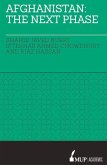When the Arab Spring exploded across the Middle East, it was no surprise that the eruption in Syria came after the upheavals in Tunisia, Egypt, Yemen, Libya, and Bahrain. The Syrians had taken their time, knowing that they were in for a particularly grim and bloody struggle. But four decades of a brutal dictatorship under the Assad dynasty could not crush their spirit-people were done with the Assad tyranny and ready to pay the ultimate price. The dictatorship alternated savage violence with promises of reform, but the barrier of fear had been broken; its horrific deeds only strengthened the resolve of those who wanted done with that cruel regime. In The Syrian Rebellion, Fouad Ajami offers a detailed historical perspective on the current rebellion in Syria. Focusing on the similarities and differences in skills between former dictator Hafez al-Assad and his successor son, Bashar, he tells how Syria has overcome decades of repression, numerous coups, and other hardships to arrive at its current state of affairs: a people poised to throw off the yoke of oppression and move forward. In 1994 Hafez Assad's oldest son, Bassel, whom he had been grooming for succession, was killed in a car accident. Hafez then settled on his other son Bashar, an eye doctor, as his successor. Syrians hoped for the best, thinking that perhaps this gangly youth, with a stint in London behind him, would grant them the freedoms denied by his father. They were wrong. When the political hurricane known as the Arab Spring hit the region, Bashar al-Assad proclaimed his country's immunity to the troubles. He was wrong. As Ajami explains, Bashar, the accidental inheritor of his father's political realm, now had his own war. He had stepped out of his father's shadow only to merge with it. But the house that Hafez Assad built, some four decades ago, is not destined to last.








